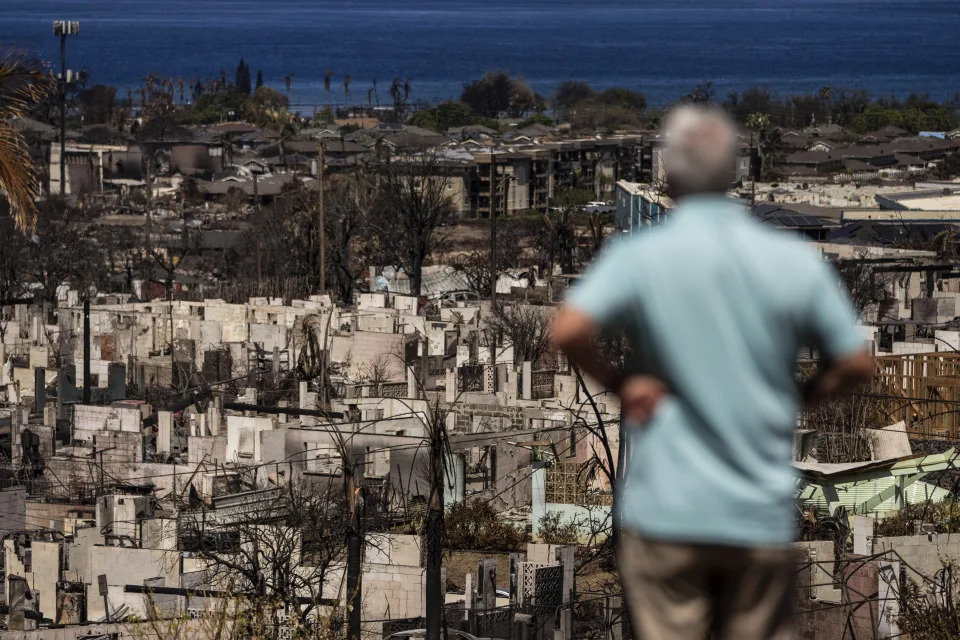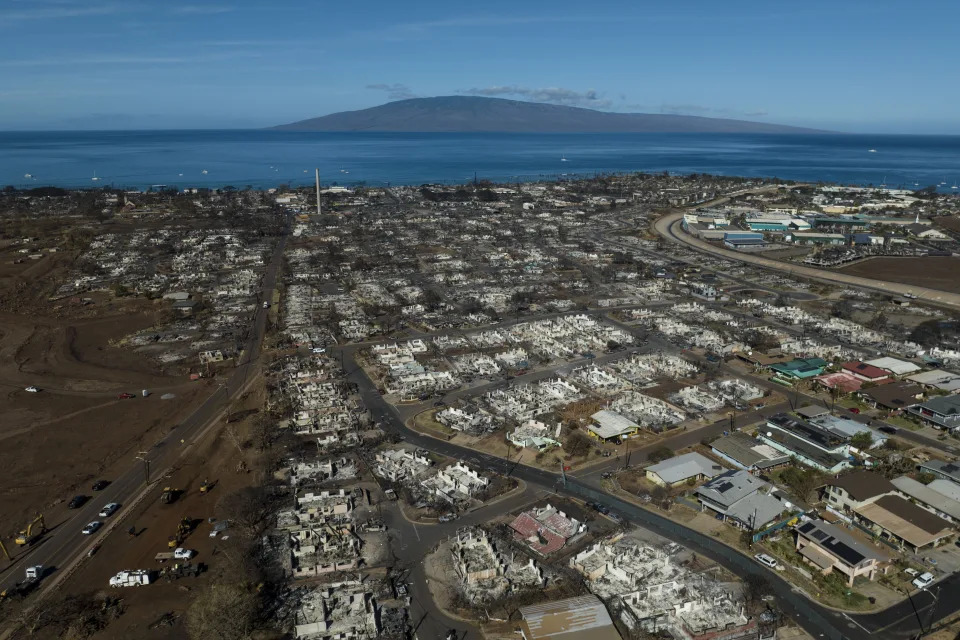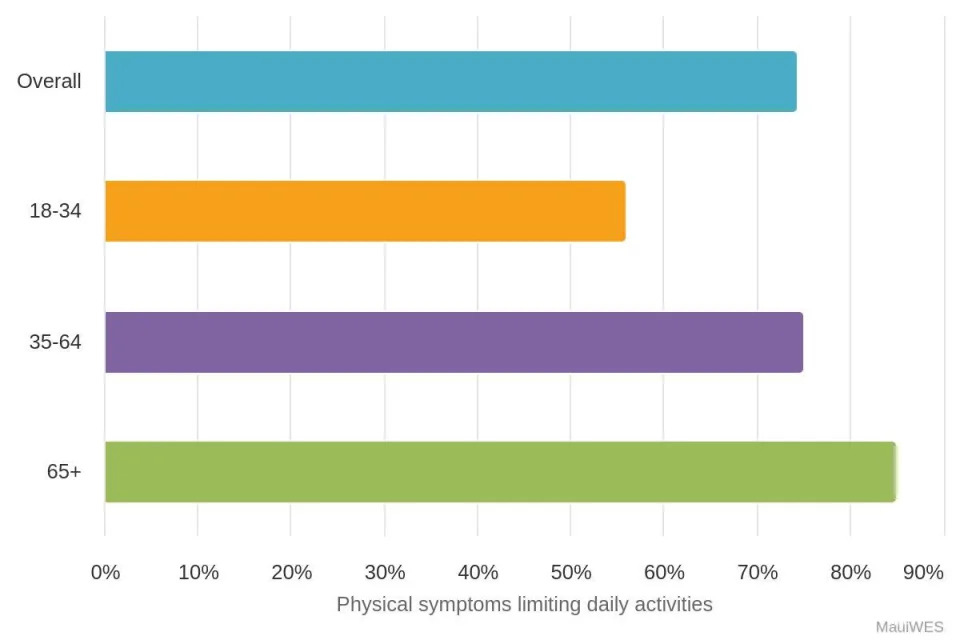Kyle Ingram
Thu, May 16, 2024

In recent years, diversity, equity and inclusion programs at colleges and universities have come under fire from conservatives, who allege that they promote divisive ideologies, drain campus resources and stoke tension on campus.
DEI programs across the country have become the target of state legislatures and university governing boards alike, who have defunded or banned them — sometimes eliminating employees in the process.
In North Carolina, the UNC System is poised to severely restrict DEI programs next week at a meeting of the Board of Governors. In anticipation of the vote, the UNC-Chapel Hill Board of Trustees voted this month to divert the $2.3 million it spends on DEI to campus police instead.
To examine the origin of DEI programs and what they do, The News & Observer spoke with Shaun Harper, a professor of education, business and public policy at the University of Southern California.
Harper, who studies DEI programs and has testified before Congress about them, published a report in March alongside 11 other scholars titled “Truths about DEI on College Campuses.”
In our interview, Harper rebutted claims that DEI could represent “divisiveness, exclusion and indoctrination,” as UNC Trustee Marty Kotis said this month. Rather, Harper said his research has found the programs ultimately benefit students and account for small portions of university budgets.
Furthermore, he said the loss of DEI offices could significantly hinder the ability of universities to deal with incidents of discrimination and harassment on campus — a responsibility they are required to uphold by federal law.
The following interview has been edited for length and clarity.
Q: How long have DEI programs been around?
A: They (universities) started investing in them in the 1970s. Many predominantly white and historically white institutions of higher education didn’t start to diversify — or start to admit Black students, specifically — until the late ‘60s, early ‘70s. What happened is that many Black students started showing up on these campuses without any support, and because they had not been there historically, the staff and administration didn’t know how to create a welcoming and inclusive environment for those students.
So, they started creating these offices of Minority Affairs — that’s what they were called in the beginning. Then over time, they shifted to ethnic culture centers and to offices of Multicultural Affairs. The Multicultural Affairs shift was intended to signify that it’s not just (for) Black students and students of color, but it’s also students with disabilities, veteran students, LGBTQ students and so on. Then eventually, Multicultural Affairs evolved into what we now call diversity, equity and inclusion.
Many people misunderstand DEI initiatives to be sort of a post-George Floyd murder phenomenon — like something that just was created within the past four years. That’s just not true. These kinds of initiatives have been around for 50 years.
Q: What about the backlash to DEI. Is that a post-2020 phenomenon?
A: Yeah, it is. Even though George Floyd’s murder was not the catalyst for the DEI initiatives themselves, because they have really been longstanding in higher education, George Floyd’s murder was in fact, the catalyst for a reckoning with structural and systemic racism in the United States, including in these higher education institutions. It forced a long overdue conversation that many Americans weren’t ready to have.
Then, fast forward to September 2020, when then-President Donald Trump signed an executive order, banning diversity, equity and inclusion programming and initiatives in our government and our nation’s military. That had a chilling effect on DEI on college campuses, because it was confusing to public institutions, because they were like, ‘Well, we’re not a federal agency, but we do receive tons of federal funds for financial aid and for research.’
Joe Biden reversed that executive order on his first day in office in 2021, but by that time the seed had already been planted. Christopher Rufo (a conservative activist) did an interview with Politico in which he tells the truth about how he and others began a movement deliberately in 2021 to tear down DEI everywhere it exists. That was a politicized, well-orchestrated, well-funded movement.
Q: As they currently stand, what sorts of services do DEI programs offer to students on college campuses?
A: They offer programming, counseling and advising for veteran students, for students with disabilities, for low-income students, students who are first in their families to attend college, for women and for students of color and LGBTQ students.
I deliberately went in that order because people who very deliberately attempt to dupe Americans about what DEI is and what it does, they kind of start and stop with ‘Oh, it’s about race and transgender students and gay and lesbian students,’ without understanding that it’s about all of those other student populations as well.
Let me add two more to the list that I think are really important: international students. Many institutions rely on them as full-paying students who don’t qualify for federal financial aid and who come and they write really big checks to be on our campuses. They, too, are among the students who are served by DEI programs.
But then there’s one more: students who are in the religious minority on their campuses. Jewish students, Muslim students and other students from religious backgrounds that are underrepresented.
Antisemitism is a problem on college campuses, full-stop. There’s no ifs, ands or buts about it — so too is Islamophobia. But in recent months, there has been an attempt to weaponize antisemitism on college campuses as a part of the movement to defund DEI. In other words, unfounded claims have been made that all DEI programs are antisemitic — they are the absolute opposite of that. In fact, it’s DEI officers and programs that actually help to make campuses inclusive for Jewish students, Muslim students and students whose religious identities and faiths are underrepresented. So what a shame that antisemitism has been misused as a political football.
Q: In the cases you’ve studied in your report, where universities or states have banned DEI programs, what has been the fallout?
A: What was lost was the support and protections for all those student groups and groups of employees. Jobs were lost as the people who do that important work to make campuses safe, equitable and inclusive were let go and their roles were eliminated. Infrastructure was lost. Experts worked for, in some instances, decades to build infrastructure that was so immediately torn down.
In that report, please take a look at Mitchell Chang’s (a UCLA professor and DEI administrator) essay. One of the things that I appreciated most about his essay is that he lays out the process of what happens if someone files a complaint of antisemitism, sexism, racism or some other form of discrimination and harassment — he lays out the actual process that colleges and universities are mandated to do by federal law when a complaint is filed.
Well, the elimination of DEI programs makes institutions incredibly susceptible to being out of compliance when these things occur on their campuses — because who’s gonna do that work? The people who were banning DEI were not thinking about the full scope of what’s all included, including these investigations and due processes that the federal government requires when there is a complaint or allegation of antisemitism, racism, sexism and so on.
What’s going to happen (if) a predominantly white fraternity at UNC-Chapel Hill decides to host a blackface party or a south of the border deportation party and the campus is in uproar because students of color are feeling parodied and attacked? What’s going to happen when white nationalists show back up on campuses spreading propaganda that is antisemitic, racist and homophobic? Who is going to do the work of helping the campus heal from that devastation?
In 2016, a fan wore a Barack Obama mask on his face and a noose around his neck to a University of Wisconsin home football game. In September 2020, a man was arrested for painting racist messages on multiple campus buildings. In May 2023, a white student posted a video to social media in which she threatened to ‘haunt every (expletive) little (racial slur)’ and ‘make them pick (expletive) cotton in the fields all day until they (expletive) die of thirst.’
DEI professionals are often involved in investigations of incidents like these. They usually lead campus recovery efforts to turn these crises into teachable moments and to help create policies to reduce the risk of recurrence. What will UW, UNC-Chapel Hill and other institutions do without these people?
Q: Some critics of DEI argue that it accounts for too much of universities’ budgets. What did you find in your research about that?
A: It’s almost laughable. When you talk to people who work in any office that is connected to what we call DEI, they will tell you without blinking that their work is chronically underfunded. So this whole notion that millions upon millions of dollars are being wasted and that there’s this so-called “DEI bloat” on college campuses is an absolutely ridiculous exaggeration.
In 2023, the Wisconsin state legislature proposed cutting 188 (DEI) jobs. That sounds like a lot of jobs, right? But that’s across 13 campuses for a total of $32 million. Now, again, anybody who sees $32 million is like ‘Wow, that’s a lot of money,’ but $32 million in the context of the University of Wisconsin system’s budget is less than one half of 1%. Furthermore, those DEI employees account for less than 1% of all of the employees across the system.
Q: The UNC System’s proposed policy would defund DEI programs while allowing them to be “redirected to initiatives related to student success and well-being.” How does that policy compare to other university systems that have banned DEI?
A: It’s pretty much in line with what everyone else is doing, both in terms of approach and semantics. Here’s one thing we know for sure about so-called ‘student success’ efforts: a rising tide does not raise all boats.
We know that already from prior programs and efforts on campuses that were intended to support all students but left behind international students, Muslim students, Latino students and so on. These various student populations have population-specific needs, issues, and expectations of their institutions. Therefore, doing the same thing for all of them in a race-less way or in a way that doesn’t account for their veteran status and all that comes with that, is guaranteed to fail — is guaranteed to under-serve them.
Q: The UNC-Chapel Hill Board of Trustees recently voted to divert all DEI funds into campus police and public safety programs. What are your thoughts on that?
A: It almost renders me speechless. It’s not unimaginable, but nonetheless wild is all I can say about it.
Here’s yet another example of how DEI is being used as a political football. I suspect the reason why these funds are being diverted to campus policing is clearly in response to the recent wave of student protests on campuses.
Would they have done that three months ago? Probably not. They probably still would have gone ahead with defunding DEI, for sure, and they probably would have done so under the guise of reallocating those monies to student success efforts. But the policing part? No. As recently as three months ago, that wouldn’t have even been on the table.
(Editor’s note: UNC BOT Chair David Boliek told The N&O that the policy was in consideration before pro-Palestinian student demonstrations began on campus.)
Q: University leaders in NC seeking to ban DEI have referred to it as ‘divisive’ or ‘indoctrination,’ what is your response to that criticism?
A: It’s so paradoxical for a higher education institution to have people making policy about a thing that they themselves have not experienced. It’s almost like writing a scathing critique of a book that one hasn’t read or a movie that one hasn’t watched.
It makes me wonder how many of these DEI programs have trustees and governors actually sat in on and participated in themselves? Were they all terrible and divisive? And did they all qualify as indoctrination? If so, who were the presenters, how were those presenters identified? What did the surveys say amongst other people who participated? Did everybody experience them as divisive and indoctrination?
In the Spotlight designates ongoing topics of high interest that are driven by The News & Observer’s focus on accountability reporting.


















